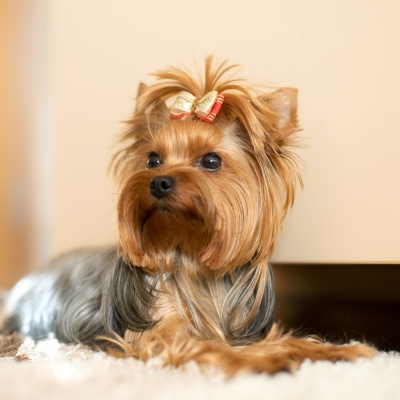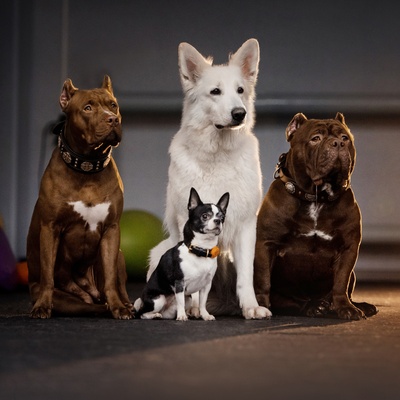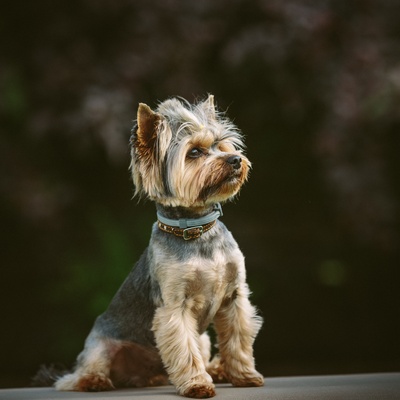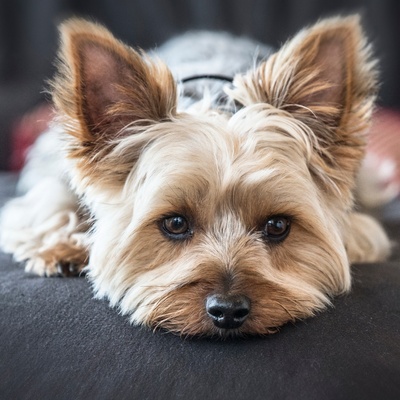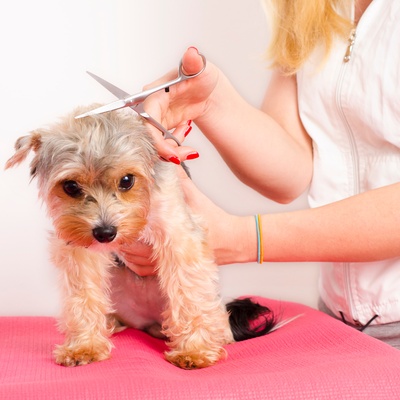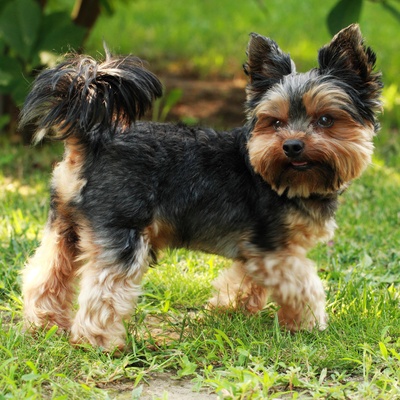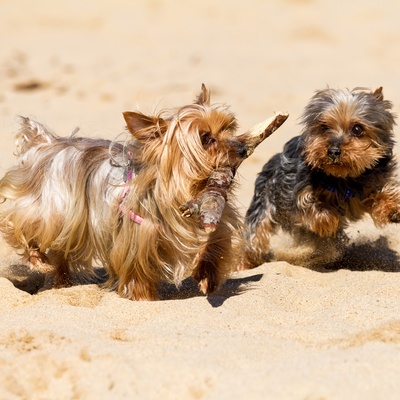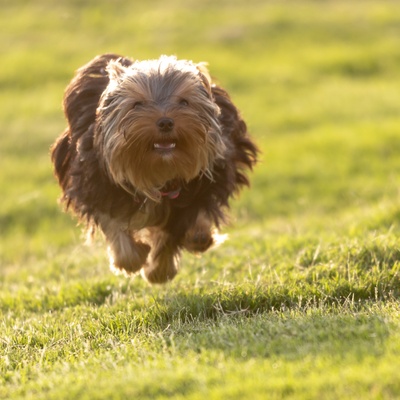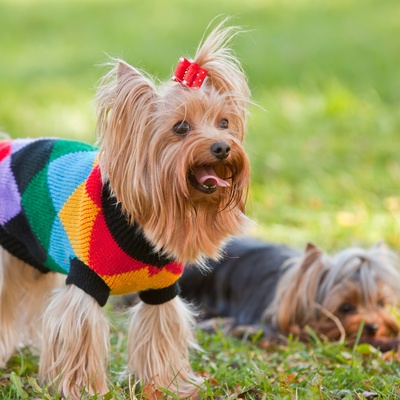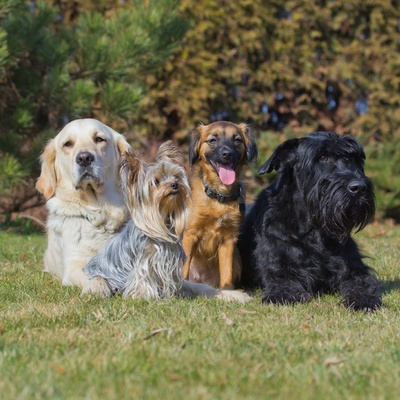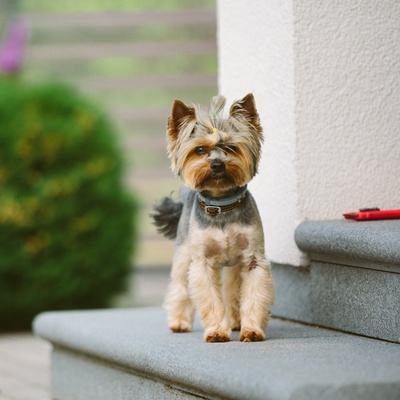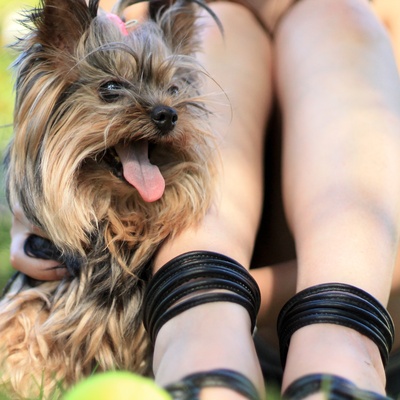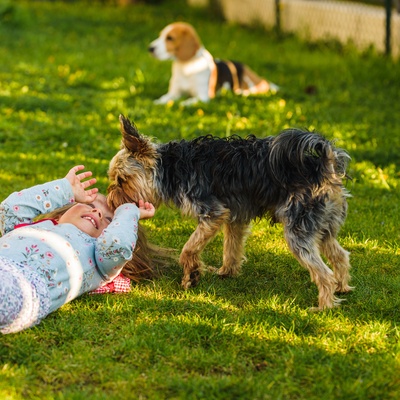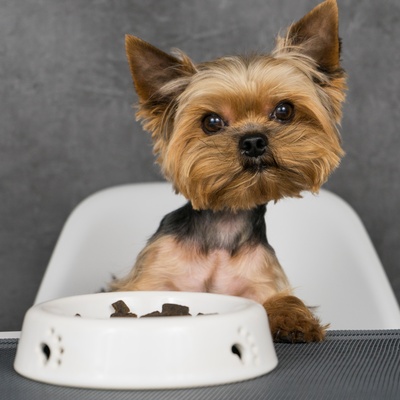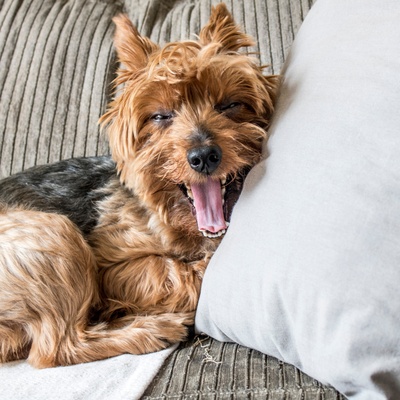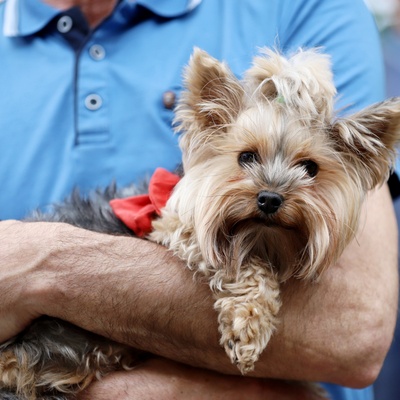Introducing the Yorkshire Terrier
Discover all there is to know about the Yorkshire Terrier: its characteristics, behavior, training, and its cost.
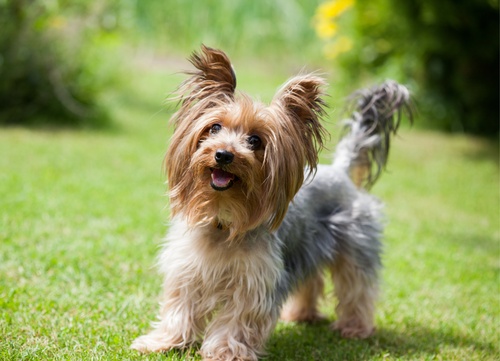
Discover all there is to know about the Yorkshire Terrier: its characteristics, behavior, training, and its cost.
The Beauceron, also known as the Berger de Beauce, originated in 16th century France. Initially bred for herding and guarding livestock, this breed is now respected and loved worldwide for its intelligence and versatility. Beaucerons excel in herding, hunting, companionship, and rescue operations. Known for their bravery, loyalty, and protective nature, they form deep bonds with their families. Affectionate and sociable, Beaucerons thrive on companionship and are friendly with people and other animals when properly socialized.
Here is a summary of the specific characteristics of dogs of the Yorkshire Terrier breed.
The Yorkshire Terrier belongs to the Toy Group. This group includes small and companionable breeds that are perfect for indoor living. These dogs are known for their friendly and affectionate temperaments.
Yorkshire Terriers are small dogs. They typically stand between 7 to 8 inches tall at the withers and weigh around 4 to 7 pounds.
Yorkshire Terriers have long, silky hair. Their coat is straight and fine, requiring regular grooming to maintain its luxurious appearance.
The Yorkshire Terrier's coat can vary. The dominant color is a combination of blue and tan, with shades ranging from dark steel blue to light tan.
Yorkshire Terriers adapt well to indoor living environments. They thrive in apartments or homes with limited space, provided they receive regular exercise.
Yorkshire Terriers are friendly and sociable dogs. They get along well with children and other animals, making them great family pets.
Yorkshire Terriers are generally healthy but can be prone to certain conditions. They may have predispositions to dental issues and patellar luxation.
Yorkshire Terriers have a lively temperament and are relatively easy to train. Kindness and patience are essential during training to ensure the best results.
We can help you!
Each dog has its own character and specific needs. Making the right choice will allow you to ensure their well-being and yours.
Thanks to our quiz, you will know the breed that suits you based on your personality, your style and place of life and many other criteria.
Don't wait any longer and take the quiz to find out the answer!
Yorkshire Terriers are small, well-proportioned, and elegant dogs. With a striking silky coat of blue and tan, and a keen, expressive face, they capture the hearts of many dog lovers.
Yorkshire Terriers are among the smallest dog breeds. Females typically stand between 7 to 8 inches tall, while males also fall within this range.
In terms of weight, female Yorkshire Terriers generally weigh between 4 to 6 pounds, and males weigh around 5 to 7 pounds.
Yorkshire Terrier puppies grow at a moderate pace. They reach half of their adult weight by around 3 months and continue to grow steadily. By the time they are about one year old, they typically reach their full adult size and weight.
Yorkshire Terriers boast a long, silky coat that is straight and fine in texture. Their fur is often described as having a glossy and luxurious appearance, adding to their elegant look.
The Yorkshire Terrier's coat color palette is distinct and limited. The breed is typically seen with a combination of blue and tan, with the blue being a dark steel blue and the tan ranging from a rich golden tan to a lighter shade.
Yorkshire Terriers have a long coat with a thick undercoat that requires regular grooming to maintain its beauty. They shed minimally, making them a low-shedding breed. Regular brushing is essential to prevent tangles and mats, with daily brushing being ideal.
Yorkies enjoy a bath every three to four weeks, using a gentle shampoo suited for their sensitive skin to maintain coat health and shine. Regular grooming ensures your Yorkshire Terrier remains comfortable and looking their best.
The Yorkshire Terrier is a balanced, well-proportioned dog with an elegant appearance. Their small yet sturdy frame is complemented by a distinctive head that is small and slightly flat on top, giving them a keen and alert expression.
Yorkies have medium-sized, dark eyes that are round and spark with intelligence and curiosity. Their ears are small, V-shaped, and set high on the head, often carried erect, which adds to their attentive look.
The body of the Yorkshire Terrier is compact and neat, with a level back and well-developed musculature for their size. Despite their small stature, they carry themselves with a proud and lively demeanor, making them both charming and confident companions.
Yorkshire Terriers are known for their loyalty, affection, and protective nature. They are confident and bold, making them delightful and engaging companions.
There are currently around 400 recognized dog breeds, classified into 10 groups. The Yorkshire Terrier belongs to the Toy Group, which includes small, companionable breeds like Chihuahuas, Pomeranians, and Shih Tzus.
Breeds in the Toy Group are known for their affectionate and sociable nature, making them ideal companions. They are typically intelligent, lively, and enjoy close bonds with their owners. The Yorkshire Terrier exemplifies these qualities with its keen intelligence, spirited personality, and deep loyalty to its family.
Yorkshire Terriers, being part of the Toy Group, are primarily companion dogs. Their small size and loving nature make them perfect for indoor living and provide excellent companionship.
Yorkshire Terriers are delightful to have around, known for their spirited and affectionate nature. They are incredibly loyal to their owners and thrive on human companionship. Yorkies love to show their affection through cuddles and playful antics, making them endearing pets. These dogs require a present and attentive owner to provide the attention and care they need to flourish.
Yorkshire Terriers are remarkably sociable and generous in spirit. They get along well with humans and are known for their friendly interactions with strangers. Yorkies make excellent companions for children due to their playful and gentle demeanor. It is crucial to work on their sociability from a young age to ensure they grow up to be well-rounded and confident dogs.
Take the test and find out the dog breed that matches your personality and lifestyle.
The Yorkshire Terrier is highly adaptable and can thrive in various living environments, whether in an apartment, a house, an urban setting, or a rural area. The key to a happy Yorkie is the love and attention from their owner. These dogs need at least two walks a day, each lasting around 20 to 30 minutes, to keep them healthy and content.
While Yorkshire Terriers are adaptable, they benefit greatly from having access to an outdoor environment where they can satisfy their curiosity and burn off energy. Regular outdoor activities and a safe space to explore are essential for their physical and mental well-being.
Yorkshire Terriers are known for their superior intelligence and quick learning abilities. They can easily pick up commands and tricks, making them a joy to train. However, their training should be approached with patience and positive reinforcement. Yorkies respond well to gentle, reward-based training methods. Due to their curious nature and tendency to explore, equipping them with a GPS collar, like those offered by Weenect, can help prevent losses or escapes and ensure their safety.
Yorkshire Terriers are excellent listeners and thrive on pleasing their owners. Their eagerness to learn and perform makes them highly trainable. Despite their small size, they can sometimes exhibit a stubborn streak, especially if they don't see the point of a command. Consistent training, combined with patience and understanding, is essential for harnessing their potential. Early socialization and structured training sessions will help them develop good manners and social skills, ensuring they grow into well-behaved adults.
The Yorkshire Terrier is generally healthy. Daily care, regular grooming, a balanced diet, and routine check-ups are essential for maintaining their health and preventing diseases.
Yorkshire Terriers are typically robust but can have common health issues like dental problems, patellar luxation (kneecap dislocation), and hypoglycemia (low blood sugar). They may also experience bronchitis and portosystemic shunt (a congenital liver defect). Dental issues can cause bad breath and difficulty eating, while patellar luxation may cause limping. Hypoglycemia can result in lethargy and seizures. With proper care, Yorkshire Terriers can live 12 to 15 years.
Routine veterinary care is vital to keep your Yorkshire Terrier healthy. Regular check-ups ensure they are up-to-date with vaccinations, deworming, and parasite treatments.
Daily care includes brushing their coat to prevent tangles and mats, cleaning their ears to avoid infections, and maintaining dental hygiene by brushing their teeth regularly. It's also important to trim their nails to prevent overgrowth and discomfort.
Yorkshire Terriers are not hypoallergenic, so it's important to be aware of any allergies they might have and consult with your vet for appropriate care recommendations.
Every dog breed has specific nutritional needs, and the Yorkshire Terrier is no exception. A balanced diet is essential for maintaining its vitality and strength, with proteins and vitamins being crucial components.
For Yorkshire Terriers, premium kibble formulated for small breeds is recommended to ensure they get the right nutrients. Additionally, you can supplement their diet with lean meats like chicken or beef for extra protein, while limiting fat to prevent weight gain. A well-balanced diet will help your Yorkshire Terrier stay fit and healthy.
The Yorkshire Terrier is a well-regarded breed, beloved for its lively personality and affectionate nature. There are numerous breeders specializing in Yorkies, making it easier to find a reputable source. It's important to consider several factors before adopting.
Before adopting a Yorkshire Terrier, consider several important points. First and foremost, selecting a reputable breeder is crucial. This involves visiting the breeder's premises to assess the living conditions and behavior of the dogs. Ensuring the health of the puppy and its parents is paramount; breeders should provide transparent information about the puppy's current health status and any illnesses in its lineage.
Lastly, you must have your dog microchipped by the age of 8 weeks old and have their details registered on a relevant database like Petlog or Animal Tracker. This is a legal requirement in Great Britain, and you could face a
fine if you don't comply. Your vet can microchip your dog for a small fee, alternatively, any Blue Cross center will do it for free.
The acquisition cost of a Yorkshire Terrier can vary based on several factors. These factors include the puppy's lineage, pedigree, the breeder's reputation, and the dog's age. Typically, Yorkshire Terrier puppies can cost anywhere from
to
from a breeder.
In addition to the initial purchase price, maintaining a Yorkshire Terrier involves ongoing costs. These include veterinary fees, grooming, and high-quality food. The estimated annual expense for maintaining a Yorkshire Terrier is around
to
.
Choosing a dog that matches your personality and lifestyle will ensure your well-being and his!
To access the most relevant information, suitable payment methods, and delivery in your region, please select the website corresponding to your country.
